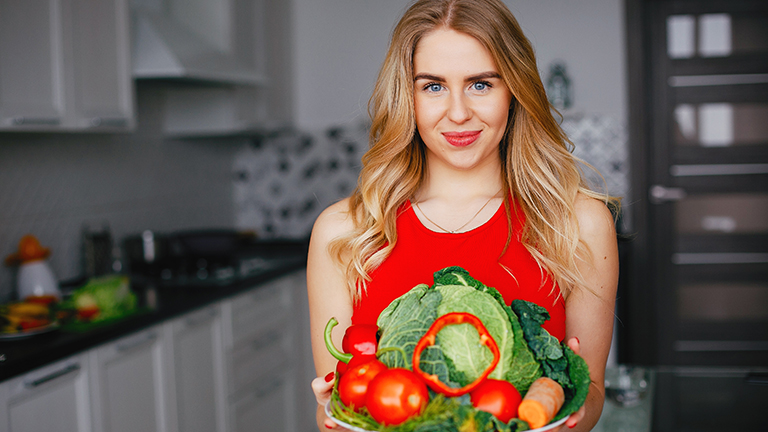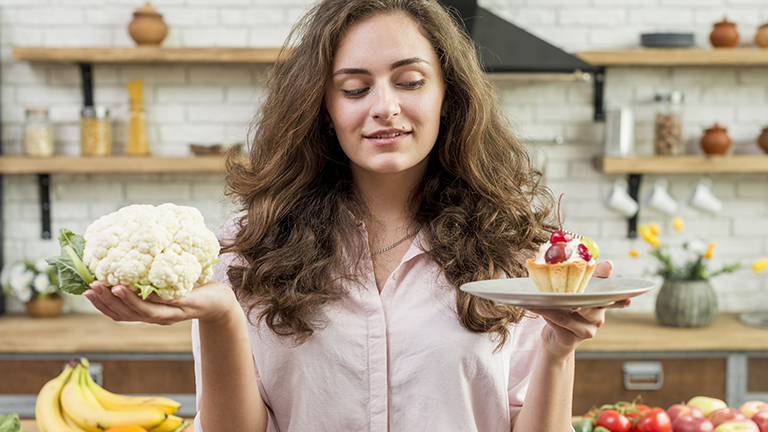Best Iron Rich Foods for Anemia in Females: Anemia is a common health condition that occurs when the body lacks enough healthy red blood cells to carry oxygen efficiently. Women are particularly prone to anemia due to menstrual blood loss, pregnancy, and nutritional deficiencies. Iron deficiency anemia, in particular, is the most common type among females, making the intake of iron-rich foods essential for maintaining overall health and energy levels.
The causes of anemia in women are multi factorial. Nutritional deficiencies, especially insufficient dietary iron intake, play a significant role. Menstruation leads to monthly blood loss, and in women with heavy periods, this can significantly deplete iron levels. Pregnancy further increases the demand for iron, as the body requires it to support fetal growth and maternal health. Chronic conditions, digestive issues, and poor absorption of nutrients also contribute to anemia in females.
Symptoms of iron deficiency anemia in women can range from mild fatigue to severe health complications. Common indicators include persistent tiredness, pale skin, shortness of breath, dizziness, cold hands and feet, brittle nails, and headaches. Some women may also experience cravings for non-nutritive substances such as ice or clay, a condition known as pica. Recognising these symptoms early and adopting a diet rich in iron can prevent the condition from worsening.
Importance of Iron for Women’s Health
Iron plays a critical role in producing hemoglobin, a protein in red blood cells responsible for carrying oxygen throughout the body. Inadequate iron intake can lead to reduced hemoglobin levels, resulting in low energy, weakened immunity, and impaired cognitive functions. Women are more susceptible to iron deficiency due to physiological factors such as menstruation, pregnancy, and breastfeeding. Maintaining adequate iron levels is essential for reproductive health, physical performance, and overall well-being.
The daily iron requirements for females vary depending on age, lifestyle, and physiological conditions. Adolescent girls and adult women typically require around 18 mg of iron per day, while pregnant women need up to 27 mg per day to support fetal development. Iron deficiency not only affects physical health but can also impact emotional well-being, causing irritability, depression, and difficulty concentrating.
Iron-rich foods are fundamental to preventing anemia and ensuring optimal health. While iron supplements can help in severe cases, natural dietary sources are preferred as they provide additional nutrients that aid in iron absorption and overall wellness.
[INSERT_ELEMENTOR id=”5108″]
Best Iron Rich Foods for Anemia in Females
Consuming a variety of iron-rich foods can help women maintain healthy iron levels and prevent anemia. These foods can be categorised into animal-based, plant-based, and fruits and vegetables.
Animal-Based Iron Sources
Animal-based foods contain heme iron, which is more easily absorbed by the body compared to non-heme iron found in plant-based sources. Incorporating these foods into the diet is highly effective in improving iron levels in women with anemia.
Red meat such as beef and lamb is among the richest sources of heme iron. Lean cuts of beef provide high amounts of iron without excessive saturated fats, making them ideal for women seeking to improve their hemoglobin levels. Liver, particularly from chicken or beef, is another potent source of iron and is highly recommended for individuals with anemia.
Poultry, including chicken and turkey, also provides heme iron in moderate amounts. Fish and seafood, such as salmon, sardines, and shellfish, contribute to dietary iron while offering omega-3 fatty acids that support heart health. Including these foods in weekly meals can significantly improve iron intake and overall nutritional balance.
Plant-Based Iron Sources (Vegetarian & Vegan Options)
Plant-based foods contain non-heme iron, which is less efficiently absorbed but still essential for women following vegetarian or vegan diets. Legumes such as lentils, chickpeas, black beans, and kidney beans are excellent sources of iron and protein, providing the body with energy and supporting muscle health.
Tofu and tempeh, derived from soybeans, are versatile sources of plant-based iron suitable for various recipes. Whole grains like quinoa, brown rice, oats, and fortified cereals contribute to daily iron intake while supplying fiber and other essential nutrients.
Leafy green vegetables, including spinach, kale, and Swiss chard, are rich in non-heme iron and also provide vitamin C, which enhances iron absorption. Nuts and seeds, such as pumpkin seeds, sesame seeds, and almonds, offer additional iron and healthy fats necessary for hormone regulation and skin health.
Fruits and Vegetables Rich in Iron
Certain fruits and vegetables are beneficial for women with anemia due to their iron content and supportive nutrients. Dried fruits like apricots, raisins, and prunes contain concentrated amounts of iron and natural sugars, providing both energy and nutrition.
Fruits high in vitamin C, such as oranges, strawberries, kiwis, and guavas, enhance the absorption of non-heme iron when consumed alongside iron-rich foods. Vegetables like broccoli, peas, and Brussels sprouts not only supply iron but also provide fiber, antioxidants, and vitamins essential for overall health.
Foods That Boost Iron Absorption
Iron absorption can be significantly improved by consuming certain foods alongside iron-rich meals. Vitamin C is a key enhancer of non-heme iron absorption. Including citrus fruits, bell peppers, tomatoes, and berries in meals can help women maximize the benefits of plant-based iron sources.
Animal-based foods containing heme iron naturally aid in the absorption of non-heme iron from plant sources. Combining meat, fish, or poultry with legumes or leafy greens can create a synergistic effect, improving overall iron levels.
On the other hand, certain foods and beverages can inhibit iron absorption. Tea, coffee, and foods high in calcium may reduce the bioavailability of iron when consumed simultaneously with iron-rich meals. Women with anemia should consider spacing these items away from iron-heavy foods to optimise absorption.
Foods to Avoid if You Have Anemia
Some dietary choices can interfere with iron absorption and exacerbate anemia. Excessive consumption of processed foods, sugary snacks, and refined grains can limit nutrient intake and hinder iron absorption. Caffeine in tea, coffee, and energy drinks binds to iron in the digestive tract, making it less available for absorption.
Calcium-rich foods, while important for bone health, may compete with iron for absorption when consumed in large quantities alongside iron-rich meals. Certain medications and antacids can also affect iron levels, so it is crucial for women to discuss dietary adjustments with healthcare providers if necessary.
Sample Anemia-Friendly Meal Plan for Women
Creating a meal plan that prioritizes iron intake can help women manage anemia effectively. A well-balanced diet combining animal-based, plant-based, and iron-boosting foods ensures consistent hemoglobin levels and overall wellness.
Breakfast could include oatmeal topped with raisins, chia seeds, and a side of fresh strawberries to provide iron and vitamin C. Lunch might feature a spinach and lentil salad with cherry tomatoes and a citrus dressing, enhancing iron absorption from plant sources. Dinner options can include grilled salmon with quinoa and steamed broccoli, combining heme iron, non-heme iron, and absorption-promoting nutrients.
Snacks such as pumpkin seeds, almonds, or dried apricots can serve as convenient ways to increase daily iron intake. Hydration with water or natural fruit juices supports overall digestion and nutrient utilization.
Lifestyle Tips for Managing Anemia Naturally
In addition to dietary adjustments, lifestyle practices play a crucial role in managing anemia. Regular physical activity improves circulation and energy levels, helping the body utilize oxygen more efficiently. Moderate exercise such as walking, yoga, or light resistance training can support overall health and well-being.
Adequate sleep and stress management are equally important, as chronic stress and fatigue can exacerbate the symptoms of anemia. Incorporating mindfulness practices, meditation, and relaxation techniques can help maintain emotional and physical balance.
Maintaining a consistent dietary routine, avoiding iron inhibitors at meal times, and including iron-boosting foods in daily meals are essential strategies for women seeking to manage anemia naturally.
When to See a Doctor
While dietary interventions are effective for preventing and managing mild anemia, severe symptoms require professional medical attention. Signs such as extreme fatigue, shortness of breath, irregular heartbeat, or persistent dizziness indicate the need for medical evaluation.
Doctors may recommend iron supplements, intravenous iron therapy, or further investigations to determine the underlying cause of anemia. Combining medical treatment with a nutrient-rich diet ensures comprehensive care and faster recovery.
Iron supplements can be effective in severe cases, but natural food sources remain the best long-term solution for maintaining healthy iron levels. A balanced approach integrating diet, lifestyle, and medical guidance provides the most sustainable results for women with anemia.
Conclusion: Best Iron Rich Foods for Anemia in Females
Iron deficiency anemia is a common health concern among females, but it can be effectively managed and prevented through a nutrient-rich diet. Incorporating a variety of iron-rich foods, including both animal-based and plant-based sources, along with fruits and vegetables that enhance iron absorption, ensures healthy hemoglobin levels and sustained energy. Paying attention to dietary habits, avoiding iron inhibitors, and maintaining a balanced lifestyle further support overall well-being. While supplements may be necessary in severe cases, a consistent, iron-focused diet remains the most natural and effective way for women to combat anemia and improve long-term health.



